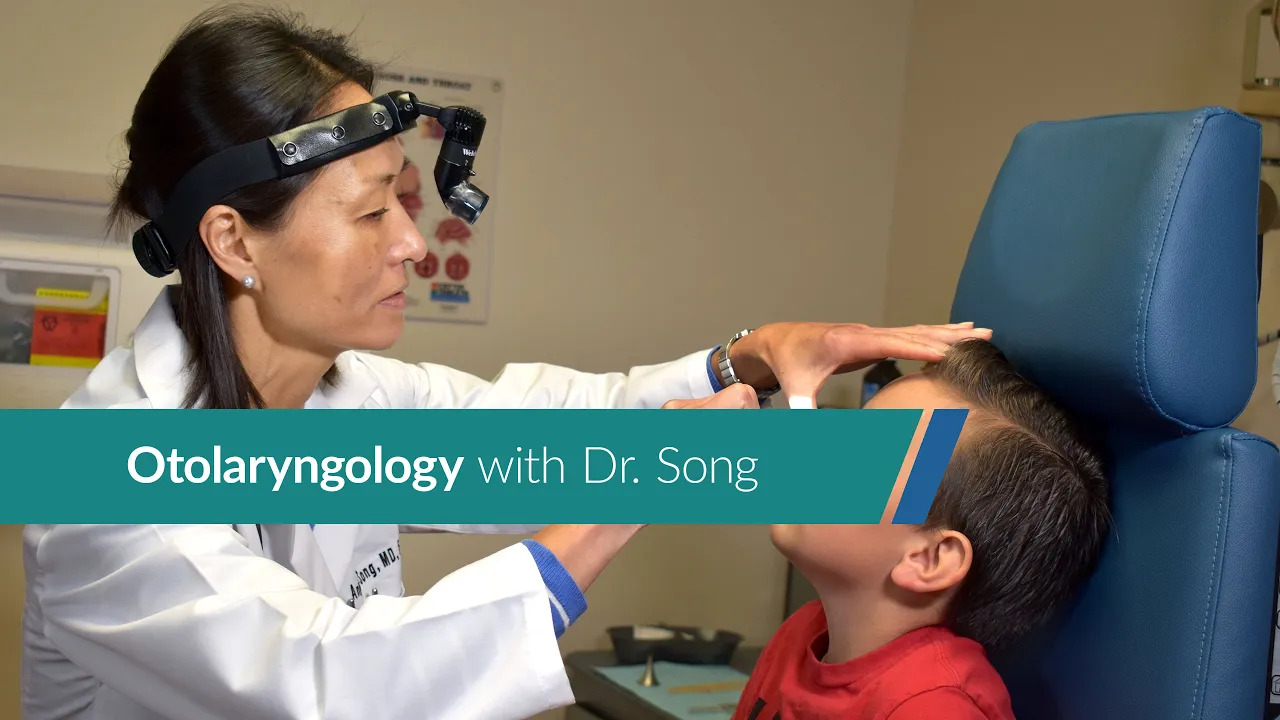Exploring the Area of Otolaryngology: What to Anticipate When You Consult an ENT
Otolaryngology, generally referred to as ENT, encompasses the diagnosis and treatment of throat, ear, and nose disorders. For those experiencing relevant problems, consulting an ENT specialist can supply clearness and relief. Recognizing what to anticipate throughout such examinations is necessary for efficient interaction and care. This overview will outline key aspects of the ENT experience, consisting of typical reasons for sees and the procedures associated with medical diagnosis and therapy.

Comprehending Otolaryngology: A Summary
Otolaryngology, usually referred to as ENT (Throat, ear, and nose) medicine, is a specialized branch of medicine that concentrates on the medical diagnosis and treatment of problems affecting these vital locations of the human body. This field incorporates a broad array of disorders, consisting of those relevant to hearing, balance, respiratory function, and speech. Otolaryngologists are trained to take care of both clinical and surgical treatments, making use of advanced techniques and innovations. Their experience prolongs beyond traditional ailments, dealing with problems such as allergic reactions, sinus infections, and hearing loss. Additionally, they play a critical role in the administration of head and neck cancers, supplying comprehensive treatment customized to individual client needs. Generally, otolaryngology remains vital for preserving health and quality of life in affected individuals.
Usual Factors to See an ENT Specialist
Many individuals look for the expertise of an ENT professional for a range of reasons, reflecting the varied nature of problems that influence the nose, throat, and ear. Typical issues include persistent sinus problems, which commonly leads to consistent nasal congestion and face discomfort. Allergies and their connected signs and symptoms, such as sneezing and itching, also prompt check outs to these specialists (Sinus). Hearing loss, whether progressive or abrupt, is one more significant reason for consultation. Additionally, people may seek analysis for throat problems, including persistent hoarseness or swallowing problems. Sleep apnea, defined by disturbed breathing during rest, is frequently addressed by ENT experts too. Each of these conditions highlights the significance of specialized care in handling complicated ENT-related health issues
Planning for Your ENT Consultation
When planning for an ENT consultation, it is essential to collect appropriate info and think about any details concerns. Clients should compile an in-depth case history, consisting of previous ear, nose, or throat concerns, surgeries, and existing medicines. Documenting signs-- such as duration, intensity, and regularity-- can give useful understandings for the ENT professional. Furthermore, people must prepare a list of inquiries they desire to ask, making sure that all issues are addressed throughout the go to. Bringing along any kind of relevant medical documents or examination outcomes can additionally help the ENT in understanding the individual's problem. Finally, clients must confirm their visit details, consisting of time, date, and area, to reduce any last-minute confusion. Correct prep work can boost the performance of the examination and lead to better results.
What to Expect During the Consultation
As the appointment starts, the individual can anticipate to engage in a thorough conversation with the ENT professional concerning their signs and symptoms and clinical history. The specialist will ask about the duration, regularity, and extent of signs and symptoms such as hearing loss, nasal congestion, or sore throat. Additionally, the person's previous medical problems, drugs, and any type of pertinent family members history will certainly be assessed, assisting the expert in developing a total understanding of the person's health and wellness. The ENT might likewise inquire about way of life aspects, such as exposure to irritants or irritants. This open discussion develops a structure for the consultation, making sure that the patient's concerns are addressed and setting the stage for any type of necessary evaluations or suggestions for treatment.
Diagnostic Tests and Procedures in Otolaryngology
A variety of diagnostic tests and treatments are important in otolaryngology to accurately evaluate and identify problems affecting the nose, ear, and throat. Usual tests consist of audiometry, which gauges hearing function, and tympanometry, analyzing middle ear stress. Nasal endoscopy permits visualization of the nasal passages and sinuses, while laryngoscopy examines the throat and singing cords. Imaging strategies, such as CT scans and MRIs, offer comprehensive views of head and neck frameworks. Allergy testing may also be conducted to recognize triggers for sinus or respiratory problems. These analysis devices allow ENT experts to establish an extensive understanding of clients' conditions, making sure customized and efficient administration strategies. Correct diagnosis is crucial for successful treatment results in otolaryngology.
Therapy Alternatives Used by ENT Specialists
ENT professionals provide a range of treatment alternatives customized ear operation for perforated eardrum to deal with specific problems influencing the throat, ear, and nose. These treatments range from conventional strategies, such as medication and lifestyle alterations, to even more invasive procedures. Allergies might be handled with antihistamines or immunotherapy, while persistent sinus problems may require nasal corticosteroids or sinus surgery. For hearing loss, ENT specialists often suggest hearing help or surgical interventions like cochlear implants. In instances of throat disorders, options can include speech treatment or medical procedures to eliminate obstructions. Additionally, they may offer support for handling post nasal drip and cough sleep apnea, consisting of making use of CPAP tools or surgical treatments. Overall, the objective is to improve people' quality of life through individualized care and reliable therapy strategies.
When to Seek Follow-Up Care With an ENT
When to look for follow-up treatment with an ENT expert is essential for taking care of recurring signs and symptoms or issues related to ear, nose, and throat conditions, identifying. People should think about arranging a follow-up visit if symptoms linger despite first treatment, such as chronic ear discomfort, nasal congestion, or throat pain. Adjustments in hearing, balance concerns, or unusual nasal discharge may also necessitate further analysis. In addition, if a person experiences negative effects from prescribed medications or has actually gone through a procedure, follow-up care is very important to monitor recovery and address any kind of concerns. Timely appointments can guarantee effective monitoring of conditions, avoid possible issues, and provide satisfaction pertaining to one's health. Looking for follow-up care promotes proactive health monitoring in otolaryngology.
Often Asked Questions

What Certifications Should I Look for in an ENT Professional?
When looking for an ENT specialist, one ought to search for board qualification, pertinent experience, and strong client reviews. In addition, reliable communication abilities and a caring strategy can significantly boost the overall therapy experience.
Exactly how Do I Pick the Right ENT for My Demands?
Picking the ideal ENT specialist entails evaluating their credentials, experience, and person testimonials (ENT Doctor). It is necessary to contemplate their communication design and approach to treatment, guaranteeing they align with the person's details health demands and choices
Are There Any Kind Of Dangers Connected With ENT Procedures?
The threats connected with ENT treatments may Learn More consist of infection, bleeding, anesthesia issues, and possible damage to surrounding frameworks. Patients should discuss these threats with their physician to comprehend private problems and warranty notified choices.
Exactly How Can I Take Care Of Anxiousness Before My ENT Visit?
To handle stress and anxiety before a visit, individuals can exercise deep breathing workouts, imagine positive outcomes, prepare concerns ahead of time, and seek support from close friends or family, promoting a sense of confidence and peace.
What Should I Do if I Experience Negative Effects From Therapy?
The individual needs to quickly report them to their healthcare supplier if side results from treatment take place. Modifications to therapy or extra treatments may be necessary to assure safety and security and performance in managing their problem - Otolaryngologist. As the assessment begins, the patient can anticipate to engage in a complete discussion with the ENT professional about their signs and clinical history. These diagnostic tools make it possible for ENT experts to establish a detailed understanding of clients' problems, making sure customized and reliable management plans. ENT specialists supply a selection of therapy alternatives customized to deal with particular conditions impacting the ear, nose, and throat. When seeking an ENT specialist, one must look for board qualification, pertinent experience, and solid individual reviews. Picking the ideal ENT expert entails assessing their credentials, experience, and patient reviews